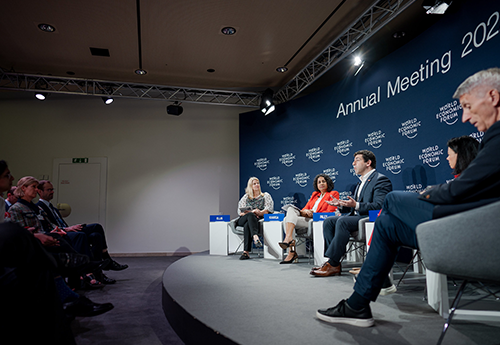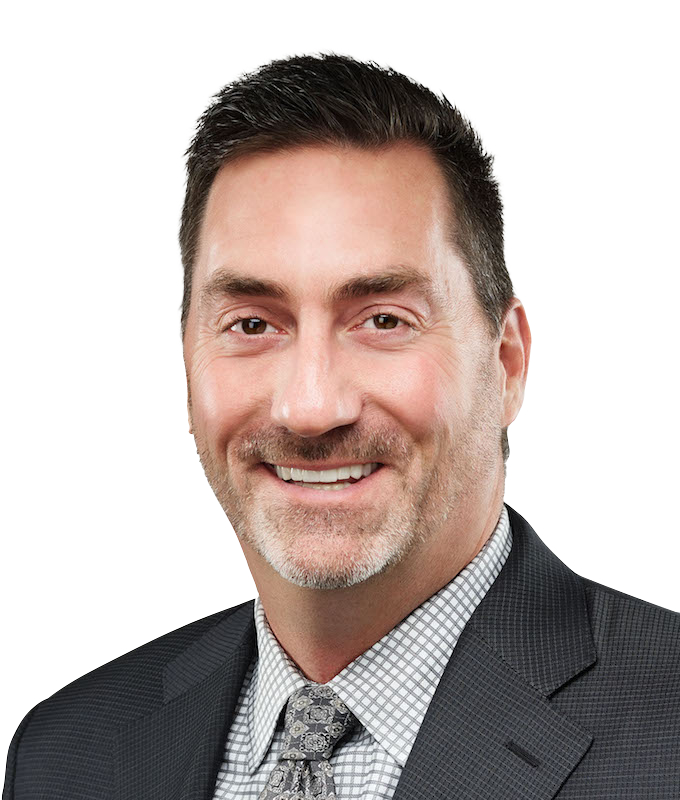World Economic Forum, Davos 2022: Driving diversity, equity & inclusion for thriving communities

Asha Kharga, Chief Customer and Brand Officer, Mahindra Group, India – Christiana Riley, Member of the Management Board, Chief Executive Officer, Americas, Deutsche Bank, USA – Sander van ’t Noordende, Chief Executive Officer and Chair of the Executive Board, Randstad, Netherlands – Sarah Kate Ellis, President and Chief Executive Officer, Glaad, USA speaking in the Driving LGBTQI+ Resilience through Equity session at the World Economic Forum Annual Meeting 2022 in Davos-Klosters, Switzerland, 24 May. Congress Centre - Forum. World Economic Forum/Manuel Lopez
Over the last couple of days, I’ve been grateful to attend several sessions in Davos addressing issues related to diverse places, DE&I priorities, and specifically the needs of our LGBTQI+ community, including Driving LGBTQI+ Resilience through Equity and the Diversity, Equity and Inclusion Outlook.
These sessions come at a critical time. Our Avison Young family, based in over 100 cities and communities around the world, share a common commitment and purpose to help realize economic, social, and environmental value in all of the places we live, work, play, and learn in. We grieve the instances where shared prosperity and wellbeing are undermined, particularly through acts of violence that impact the marginalized and vulnerable. We continue to condemn violence and intolerance in all forms, and as I write this from WEF, we also seek out the resourcing, thinking, and global dialogue needed to sustain progress across all of our communities.
In these WEF panel discussions, we explored current risk factors that disproportionately impact marginalized communities. Led by Sarah Kate Ellis, the President and CEO of GLAAD, Amit Paley, CEO of The Trevor Project, and Nadia Murad, the Co-Founder of Global Survivors Fund, we focused on recent social and economic disruption and how governments and businesses can prioritize diversity, equity, and inclusion to deliver durable, resilient solutions to the most pressing social and economic challenges in the decade ahead.
The statistics shared by these remarkable speakers were sobering— covering a spectrum of issues including self-harm among youth, violence against women, and the destructive impact of war strategies that deliberately exploit vulnerable populations. While the role of legislation and protective policies were discussed, we also heard the importance of simply making issues of equity and inclusion a larger, more formalized priority across business and media. As the WEF explores in their Why LGBTQ representation should be a priority for business and media 2022 agenda deep dive, despite LGBTQ representation reaching all-time highs, media and business still have a major role to play in amplifying diverse stories in support of our underrepresented, often at-risk communities.
In the real estate industry specifically, we are developing new ways to embed equity and inclusion into urban planning, workplace modelling, and portfolio strategies. By treating economic, racial, cultural, and LGBTQI+ needs as data points- right alongside elements like space utilization and commuting patterns- we can create resilient places for all people, encouraging access and democratizing shared spaces.
This focus on holistic data is shared by the WEF, whose agenda featured a deep dive specifically on this topic: We can't create shared value without data. Here's why. This thought leadership piece evolves the WEF’s previous, game-changing "Creating Shared Value", re-envisioning it for the data age and emphasizing the critical importance of data strategy in the pursuit of equity and inclusion.
At Avison Young, we have also been specifically focused exploring hybrid work models as an accelerator for inclusion, as I discuss in my article just published on the WEF Agenda website.
Another area we think has tremendous potential is the crossroads where the public/ private sectors converge, arming our clients with insights into historical shortcomings, systemic inequalities, and increased diversity of perspectives involved in decision-making. All of this ultimately generates cities, spaces and technologies that are accessible for everyone.
The focus on DE&I here today reinforced to me more than ever how closely the priorities of the World Economic Forum align with our own. Of course doing business and the state of the economy are important to us. But the emphasis on bringing together the world’s leading businesses and public figures to collectively address issues like climate change and driving social change is fundamental to what Avison Young stands for. We don’t just want to do business; we want to do good business.
Please check out more on these and other key 2022 WEF Agenda priorities here. It’s been an action-packed week and I couldn’t feel more inspired- and supported- in working to create real change and lasting value along with these incredible subject matter experts and industry leaders. I’ll wrap up my thoughts on the Annual Meeting as a whole in my final blog from Davos tomorrow.
Please check out more on these and other key 2022 WEF Agenda priorities here. It’s been an action-packed week and I couldn’t feel more inspired- and supported- in working to create real change and lasting value along with these incredible subject matter experts and industry leaders. I’ll wrap up my thoughts on the Annual Meeting as a whole in my final blog from Davos tomorrow.

